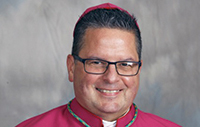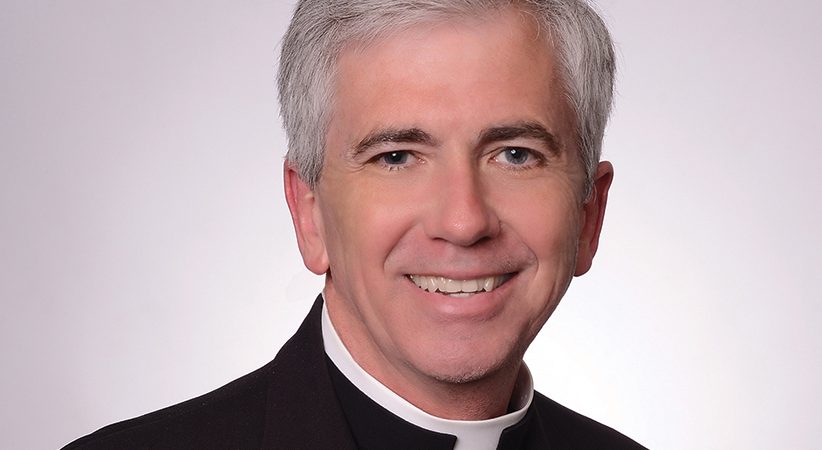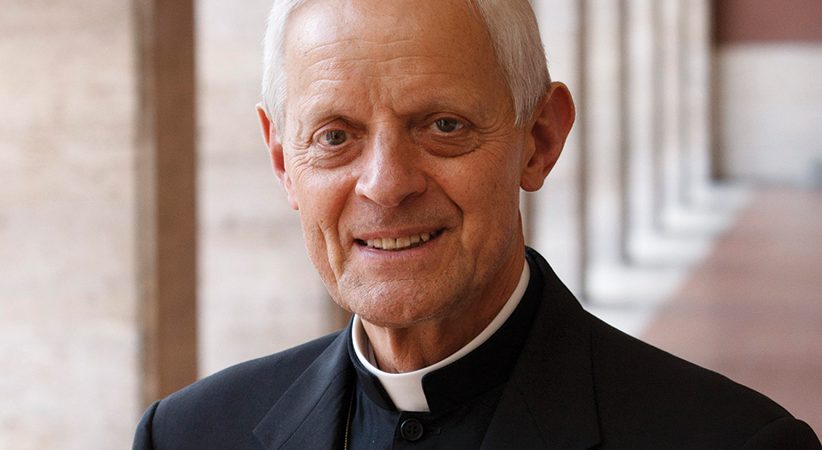The Church as a Ship
Steering the path set forth by Jesus
Bishop David J. Bonnar Comments Off on The Church as a Ship
 Since her origins there have been many words and images employed to capture the essence of the Church. The one image that speaks to my heart about the Church is that of a boat sailing on the waters of life and persevering through the deep waters, rising waves and emerging storms that are part and parcel of the world. In fact, it is not uncommon for some church buildings to be built in the shape of a boat.
Since her origins there have been many words and images employed to capture the essence of the Church. The one image that speaks to my heart about the Church is that of a boat sailing on the waters of life and persevering through the deep waters, rising waves and emerging storms that are part and parcel of the world. In fact, it is not uncommon for some church buildings to be built in the shape of a boat.
While this image did not make the cut for Avery Dulles’ “Models of the Church” (Image, $17), it, nonetheless, holds some value. Jesus inviting his disciples, many of whom were fishermen, to “put out into deep water” (Lk 5:4) gives some credence to this image.
Given the size and complexity of the Church body, not to mention the deep and mysterious waters she finds herself in, the Church might be best described as a ship. Ships are typically larger than boats and are better prepared for the elements. They can also house more passengers.
But there is another reason why the term ship is more fitting to describe the Church. You see, the Church operates with a fleet of ships that are essential for victory. The first ship in this regard is leadership. The Church relies upon the leadership of a shepherd who is to give the flock “a shepherd’s care.” If you have ever been on a sheep farm, I am sure you know that the task of a shepherd is one that can be demanding and dirty. A true shepherd must always be ready to risk his life for his sheep. It is never about him. Of course, while each shepherd has his own leadership style, the result of his guidance is the same — namely, to bring others to Christ and to the eternal harbor of heaven.
Another important ship for the Church is membership. Every leader must work hard to encourage and maintain membership. Evangelization is critical in this effort to obtain and sustain more church members. A periodic census is also helpful. What is more, it is incumbent upon every leader to introduce his members to the ship of ownership to the extent that they view their parish as their home and their faith as a gift that needs to be nurtured.
This shared sense of ownership is synonymous with yet another ship — namely, stewardship. Stewardship is a matter of assuming responsibility through the time, talent and treasure of the ship and all in it. Pope Francis, in Laudatio Si’, has taken this responsibility beyond the traditional sense by calling attention to the poor and the environment. Leaders and members need to work together to be stewards of God’s creation and our “common home” with greater intentionality toward protecting and safeguarding the environment. When the environment is compromised, the poor suffer.
What are we doing in our respective ships and parish communities to respond to this ecological crisis? A good start might involve inviting the faithful to read Laudatio Si’ as part of a discussion group. It might also be advantageous to print quotes each week in the bulletin or on the parish website. Finding an opportunity to incorporate this shared responsibility into a homily is yet another strategy to bring this matter home about our common home. Each of these efforts could eventually engender the formation of a parish environment committee that would be tasked with calling for ways to respond on a local level to the Holy Father’s vision.
While Jesus did not speak specifically about the environment, he nonetheless called us to love one another. The commitment to love one another translates into intentional care and concern for one’s surroundings. When we embrace this call and put it into action, we manifest discipleship. We follow the path set forth for us by Jesus.
Through this collective collaboration of love, care and concern for one another and the environment, we come to know fellowship, otherwise known as communion. And, as we sail on the seas in the fleet of these ships with God’s providence, how can we not echo the words from the Te Deum, “The noble fellowship of prophets praise you,” because we would be lost without these ships.
BISHOP DAVID J. BONNAR, editor of The Priest, is bishop of the Diocese of Youngstown.





